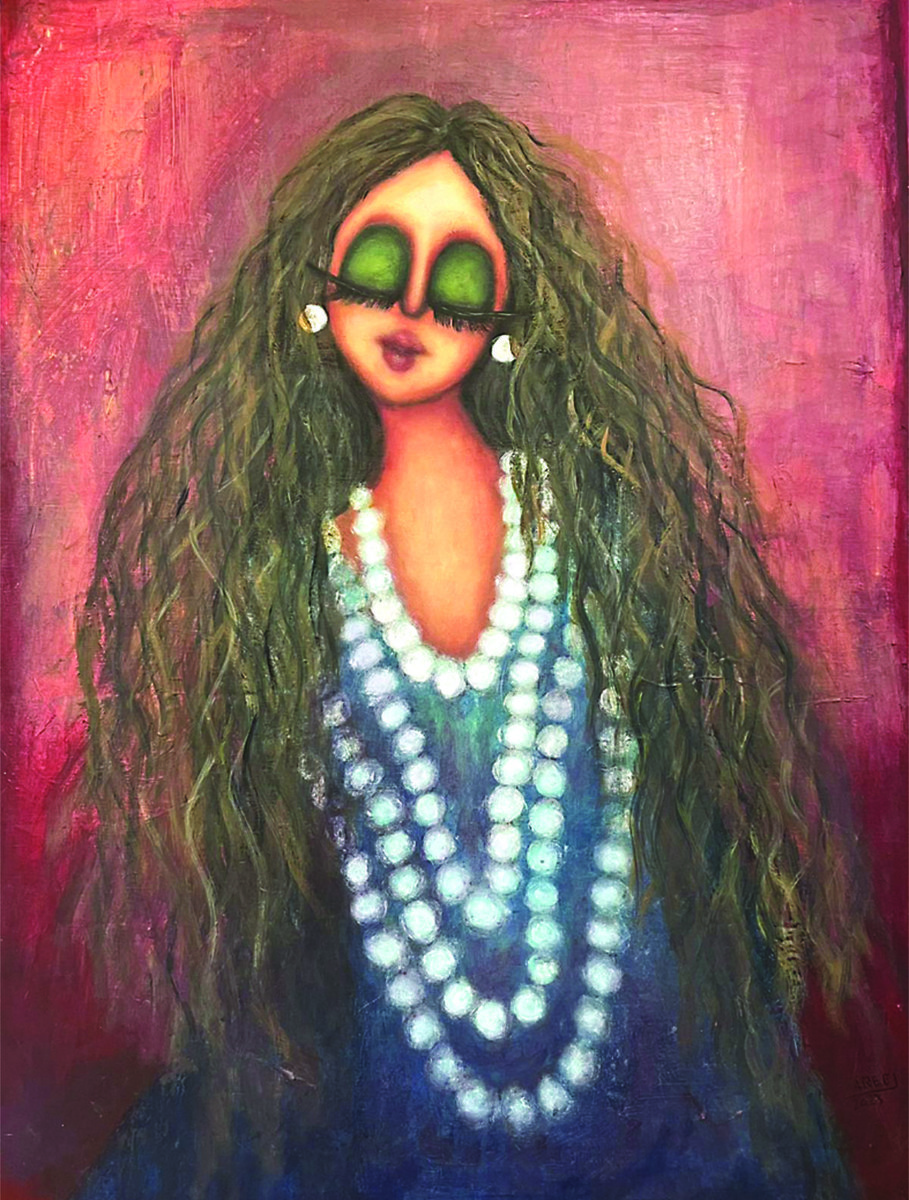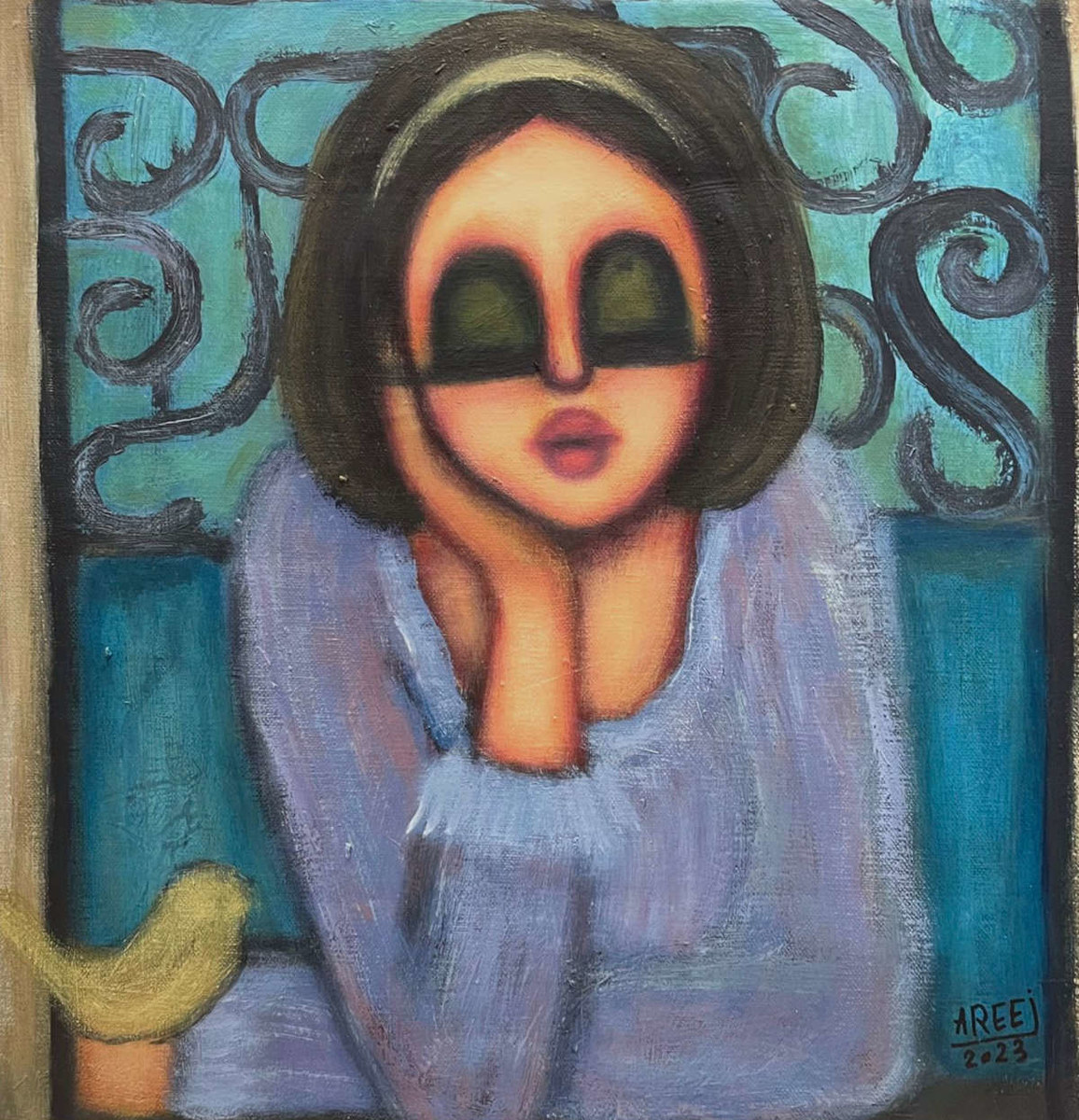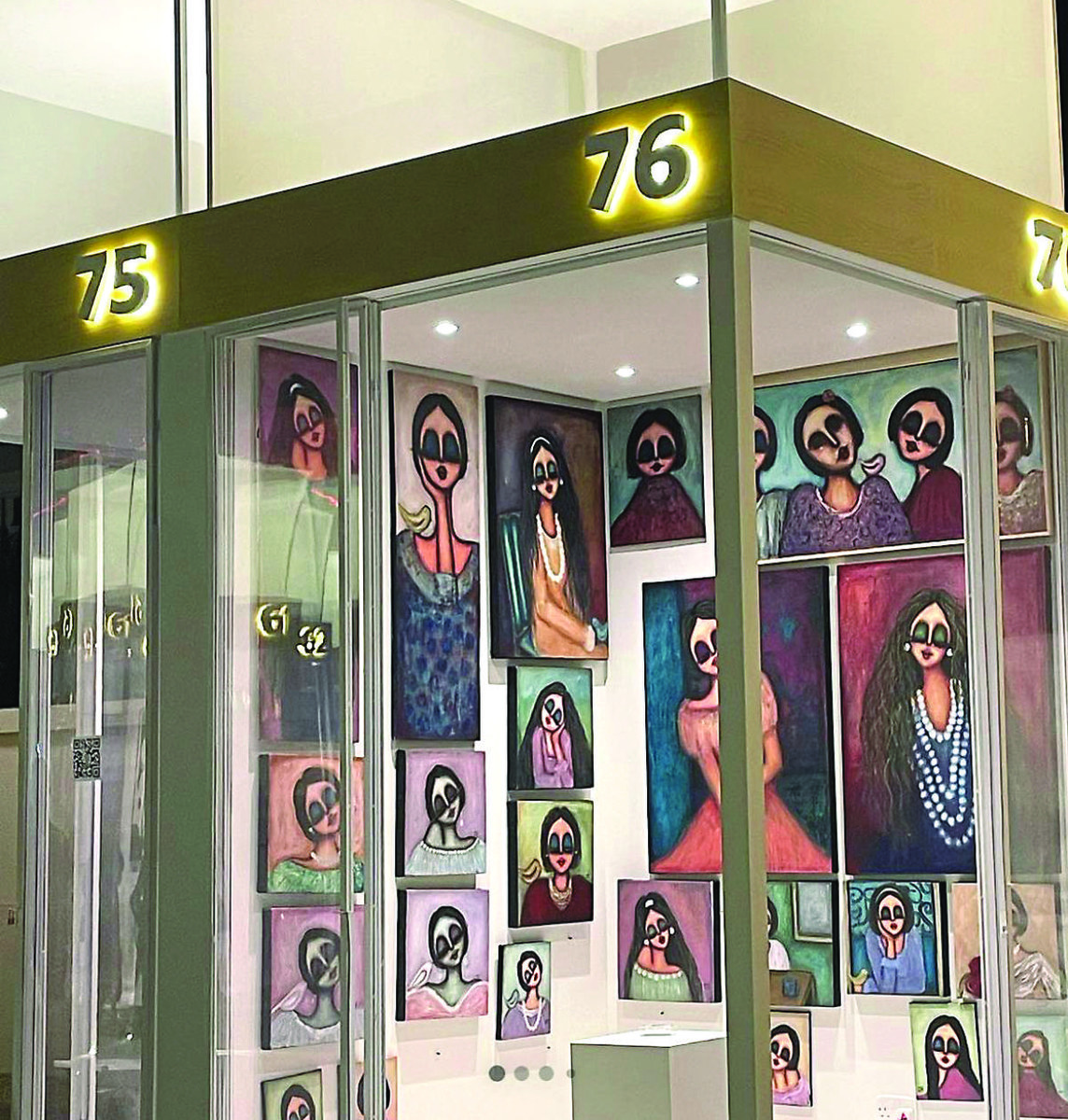RIYADH: In the sanctuary of her studio, Saudi artist Areej Obaid wields her brush on a blank canvas with her emotions guiding her to create a world of her own.
Each stroke of color embodies her innermost thoughts and desires, tracing the lines of her heart.
With each bristle dipped into vibrant pigments, Obaid’s emotions dance and intertwine, blending in a harmonious symphony.

Obaid works possess wisdom beyond her years, reflecting the inner workings of her mind. (Supplied)
The 35-year-old artist’s palette of emotions is vast, ranging from the passionate hues of red that evoke love and desire to the serene blues that reflect gloom and introspection.
In her studio in Abha, she finds solace and liberation from the chaos of the outside world, allowing her to navigate the labyrinth of her emotions through the transformative power of art.
HIGHLIGHTS
• Through her educational background in psychology, Saudi artist Areej Obaid uses her paintings to reflect the depth of human emotion.
• Her paintings depict various female figures experiencing turmoil, which describes the artist’s innermost feelings as a woman.
• Obaid was influenced by Italian painter and sculptor Amedeo Modigliani who was also part of the expressionism artistic movement.
“As I sit in front of the easel, my brush becomes an extension of who I am, revealing my deepest secrets and unspoken truths,” Obaid told Arab News.
The canvas captures the essence of her being, mirroring her joys, sorrows, and dreams.
As Obaid immerses herself in the creative process, a sense of catharsis washes over her, purging the burdens of daily life and allowing her to experience freedom and self-discovery.

Obaid works possess wisdom beyond her years, reflecting the inner workings of her mind. (Supplied)
During a challenging period of her life, she explained that “painting became my solace since it provided a creative medium to express my sorrowful feelings.”
Since childhood, Obaid has had artistic tendencies, especially recreating portraits of cartoon characters.
I named my collection ‘Isolation’ because a person needs to step back from society and search within themself (for) their strengths.
Areej Obaid, Saudi photographer
Through her educational background in psychology, Obaid uses her paintings to reflect the depth of human emotion, a profound and intricate aspect of our existence.
Her paintings depict various female figures experiencing turmoil, which describes the artist’s innermost feelings as a woman.

Obaid works possess wisdom beyond her years, reflecting the inner workings of her mind. (Supplied)
Obaid said that these complex feelings allow us to experience the richness of life and connect with others on a deeper level.
“Emotions are the driving force behind our actions, thoughts, and interactions with the world around us. They can vary from overwhelming joy to debilitating sadness, from intense love to searing anger,” she added.
They can be both beautiful and devastating, as they can inspire us to create art, seek knowledge, and make meaningful connections while also leading to heartbreak, disappointment, and despair.
Obaid was influenced by Italian painter and sculptor Amedeo Modigliani who was also part of the expressionism artistic movement.

Obaid has participated in 11 art exhibitions around Saudi Arabia. (Supplied)
Expressionism is a style that focuses on portraying the personal emotions and reactions evoked by objects and events, rather than presenting a realistic depiction of them. It was a prominent movement during the late 19th and early 20th centuries.
“This is achieved through distortion and adding fantastical elements,” explained Obaid.
Many artists experience a common struggle — the fear of exhibiting their works, which may be deeply personal to them. Showcasing their paintings is as daunting as presenting a piece of themselves to the world.
Obaid spoke about her own experience with such fear and said: “Before 2020, I did not display my artwork and preferred to keep it to myself. But as I immersed myself in the arts, I really enjoyed discussing my paintings with viewers and gaining knowledge from my fellow artists.”

Obaid has participated in 11 art exhibitions around Saudi Arabia. (Supplied)
She added that by interpreting her art, “The viewers can understand themselves more and empathize with others, creating a powerful tapestry of human experience.”
Since 2020, Obaid has already showcased her collection in 11 art exhibitions across the Kingdom. She has displayed her paintings at Zawaya Gallery in Jeddah and Naila Gallery in Riyadh multiple times.
Speaking about the inspiration behind the name of her collection, she said: “I named my collection ‘Isolation’ because a person needs to step back from society and search within themself (for) their strengths.
“This evokes an internal journey to the search for inner peace to return to life a stronger version,” she explained.
However, she does not give names or titles to her paintings for the sake of the viewer of the artwork: “I do not prefer naming my paintings, as I like to listen to what each recipient of my art feels as he gazes at my artwork.”
Her works possess wisdom beyond her years, reflecting the inner workings of her mind.
Obaid was one of the 32 artists who participated in the “Art and Pandemic” exhibition organized by the Saudi Arabian Society for Culture and Arts. She also had her work showcased at the 50x50 Exhibition at Desert Heritage Gallery in Alkhobar, and Misk Art Week.
Obaid told Arab News that if the opportunity comes, she would love to participate in exhibitions at global art galleries.
She plans to continue to pour her soul onto the canvas, expertly weaving tones, shapes, and textures into a symphony of visual poetry.
“My advice to aspiring and shy artists is to continue, especially beginners, no matter how many negative comments you encounter. You should follow in the steps of experienced artists without losing the integrity of your artwork,” she said.


































